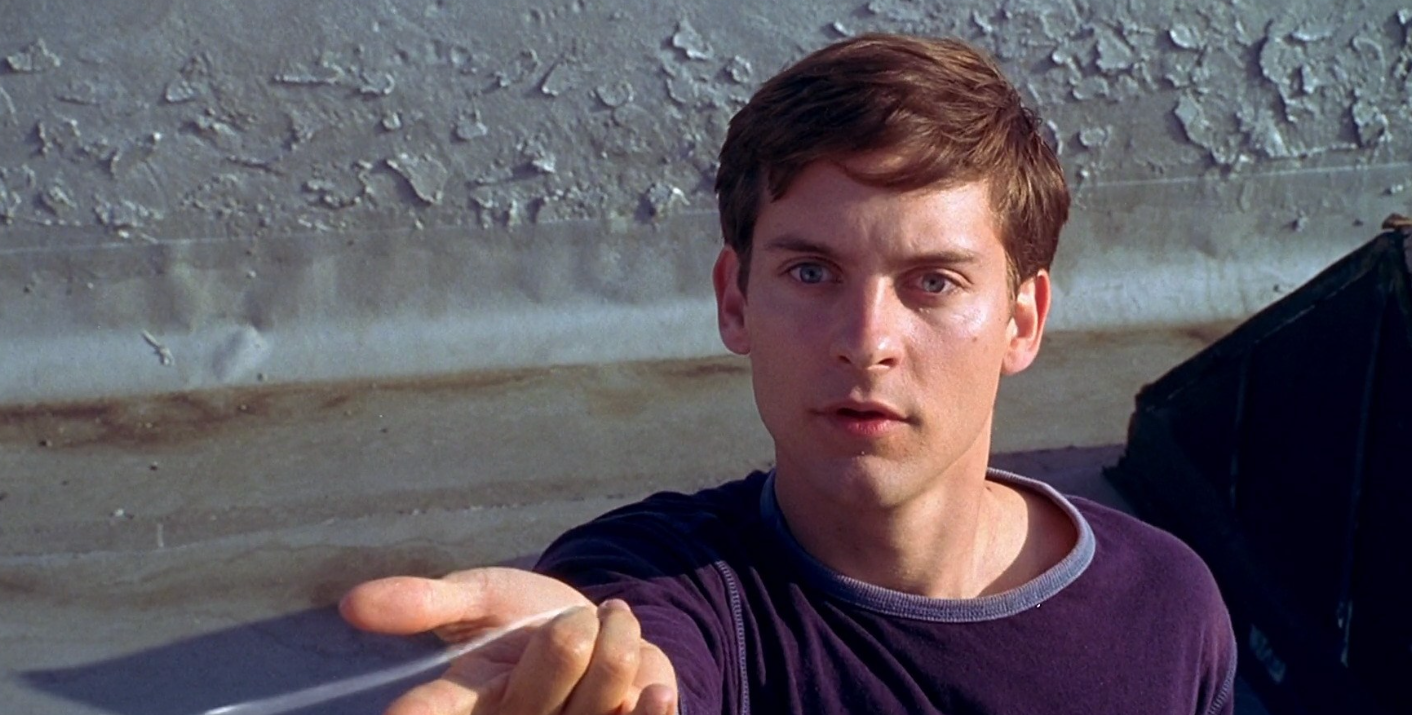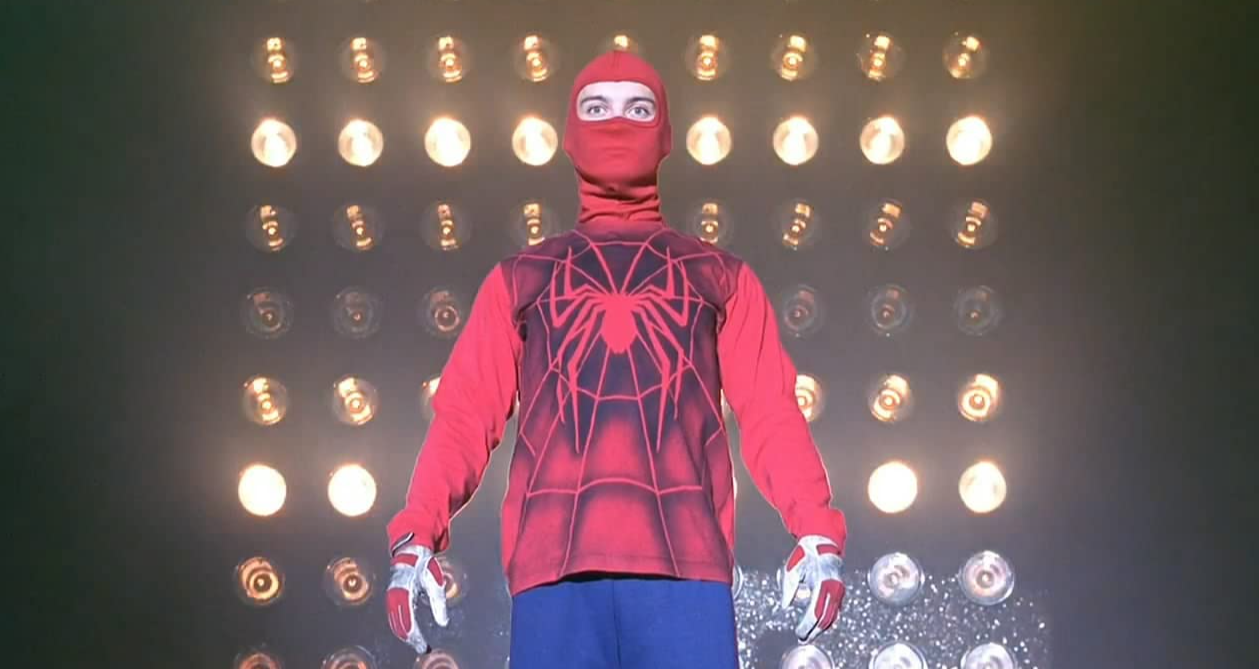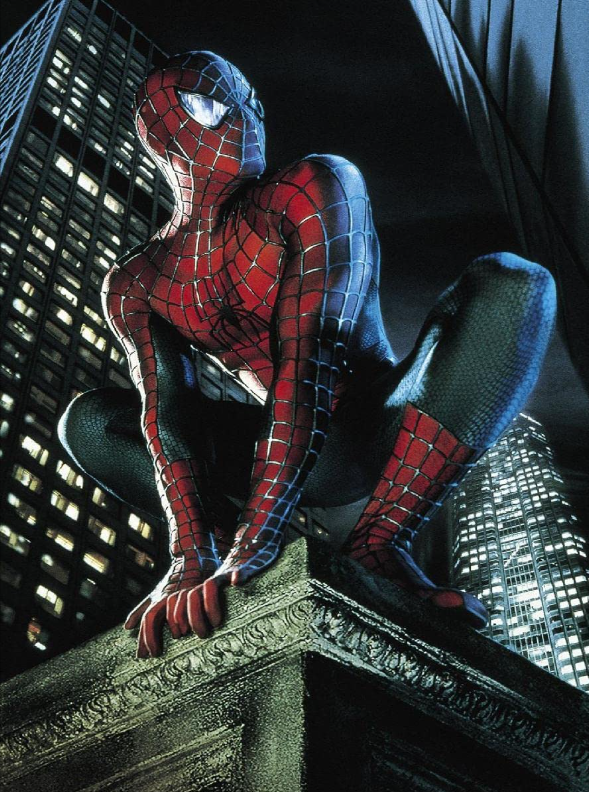Reflecting on “Spider-Man,” 20 years later
Photo courtesy of Colombia Pictures
Spider-Man perches on a rooftop. The success of “Spider-Man” at the start of the millennium led to a trend of superhero films for the next two decades.
November 16, 2022
Long before the Marvel Cinematic Universe, superhero films were sparse and rarely achieved a high level of quality. Upon its release in 1978, “Superman” became a surprise hit that led to three underwhelming sequels. This one-time oddity was the only superhero film to get mainstream attention until “Batman” in 1989, which was an even bigger cultural phenomenon. Instead of ushering in a wave of superhero films, “Batman” gave way to a trend of bringing pulpy comics from the early 20th century to the big screen, with films like “The Shadow,” “Dick Tracy” and “The Phantom.”
As the Batman sequels became more kid-friendly and increasingly silly, the public perception went back to treating comic book films, and those who enjoyed them, as nerdy and lame. As a counterreaction to this, superhero films began to look as cool as possible at the dawn of the new millennium. Films like “Blade” and “X-Men” went to great lengths to seem less like anything that resembled their comic counterparts. Then in 2002, “Spider-Man” was released, and it changed everything.
“Spider-Man,” tells the beloved origin story of Peter Parker (Tobey Maguire), a down-on-his-luck teenager from Queens, New York. After getting bitten by a radioactive spider, Peter develops spider powers and starts fighting crime as a vigilante named Spider-Man.
At the same time, Norman Osborn (Willem Dafoe) takes on a new identity of his own as the Green Goblin after a failed super-soldier experiment. Peter has to juggle his interpersonal relationships while using his powers for good to stop this new menace.

After 20 years and nine theatrically released Spider-Man films later, this film still holds up. It might seem too goofy, but that’s the point. It embraces its comic book nature and really digs deep to give the fans what we love most about this character. We probably wouldn’t have the MCU as we see it today if it was not for the huge success of this film, and I think those films can still look back and learn a lot from this film.
“Spider-Man” is achingly sincere. It isn’t trying to look cool or strip away the inherent goofiness that comes with the character. It’s a film that doesn’t make jokes at its own expense to communicate to the audience that it knows it’s silly. This irony-absent film was only made this way because of its director, Sam Raimi, and his history of comic-styled filmmaking.
Sam Raimi began his filmmaking career by making movies in the woods with his college friends. His cult-hit “Evil Dead” franchise was an entertaining mixture of Three Stooges-esque comedy and over-the-top gore. A few films into his career, Raimi decided to create his own original superhero film, “Darkman,” after being turned down to direct “The Shadow.” The film’s visual language and themes of living in a constant state of unrest were also apparent in “Spider-Man.”

Peter Parker is a tragic hero. The best Spider-Man stories are able to link the incredible crime-fighting life of Spider-Man to that of the unremarkable Peter Parker. If Spider-Man is winning, then Peter is losing. The beauty of Spider-Man as a character is that he is much more than a superhero.
This film and its two direct sequels understand Peter’s character the most out of any of the other live-action adaptations. When you strip away the fantastical elements from the character, this story is about a struggling young adult who wants to make the world better. When life throws him the toughest challenges, he keeps fighting to save his friends, family and, most importantly, his city.
This film understands how integral normal citizens are to the world of superheroes. Without the normal folks in Peter’s life and the general public of New York City, these fights with villains would be meaningless. This element has been lost with current films in this genre. With so many super-people in a film to pay attention to, there is not enough time for the common folk.
“Spider-Man” is not the best superhero film out there (that title belongs to “Spider-Man 2”), but it was such a huge hit in pop culture that it ended up defining the next generation of cinema, for better or worse. It might seem lame in the eyes of new fans, but its sincerity shines brighter than most modern blockbusters we see today. This groundbreaking classic earns an eight out of 10.






